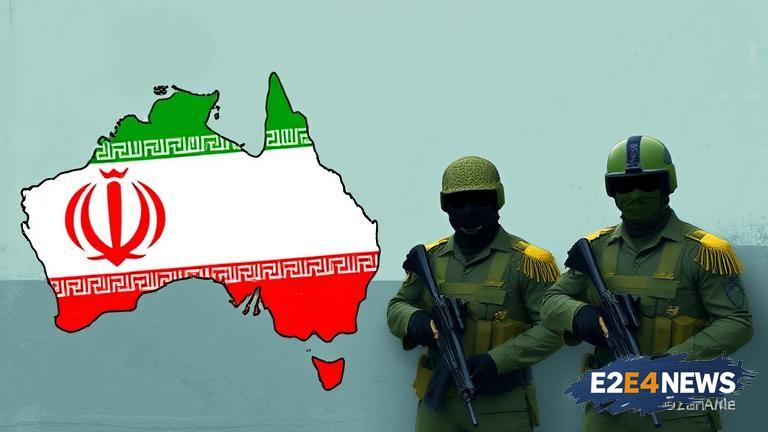The Australian government has been under scrutiny for its stance on the Islamic Revolutionary Guard Corps (IRGC) and its designation as a terrorist organization. Sussan Ley, a prominent figure in Australian politics, has expressed her belief that the IRGC should have been listed as a terrorist group earlier. This statement has sparked a heated debate on the country’s national security and its relations with other nations. The IRGC has been accused of being involved in various terrorist activities and human rights abuses, which has led to its designation as a terrorist organization by several countries. The Australian government has been criticized for not taking a stronger stance against the IRGC, with some arguing that it has been too slow to act. Ley’s comments have been seen as a call to action, urging the government to take a more proactive approach in addressing the threats posed by the IRGC. The IRGC’s designation as a terrorist organization has significant implications for global security, as it is seen as a key player in the region’s geopolitical landscape. The Australian government’s decision to list the IRGC as a terrorist organization would be a significant step in addressing the threats posed by the group. However, it is also likely to have significant diplomatic and economic implications, particularly in relation to Australia’s trade and diplomatic relations with Iran. The IRGC’s involvement in various terrorist activities, including the funding and support of militant groups, has been well-documented. The group’s human rights abuses, including the suppression of dissent and the persecution of minority groups, have also been widely condemned. The Australian government’s response to the IRGC’s activities has been criticized as being inadequate, with some arguing that it has not done enough to address the threats posed by the group. Ley’s comments have been seen as a reflection of the growing concern among Australians about the IRGC’s activities and the need for the government to take a stronger stance against the group. The debate surrounding the IRGC’s designation as a terrorist organization is complex and multifaceted, with various stakeholders having different opinions on the matter. While some argue that the designation is necessary to address the threats posed by the group, others argue that it could have unintended consequences, such as escalating tensions in the region. The Australian government’s decision on the IRGC’s designation as a terrorist organization will have significant implications for the country’s national security and its relations with other nations. It is likely to be a highly contentious issue, with various stakeholders having different opinions on the matter. The government will need to carefully consider the implications of its decision and ensure that it is taking a proactive approach in addressing the threats posed by the IRGC. The IRGC’s activities have been widely condemned, and it is seen as a key player in the region’s geopolitical landscape. The Australian government’s response to the IRGC’s activities will be closely watched, both domestically and internationally. The government’s decision on the IRGC’s designation as a terrorist organization will be a significant step in addressing the threats posed by the group, but it will also require careful consideration of the potential implications. The debate surrounding the IRGC’s designation as a terrorist organization is likely to continue, with various stakeholders having different opinions on the matter. The Australian government will need to navigate this complex issue carefully, ensuring that it is taking a proactive approach in addressing the threats posed by the IRGC while also considering the potential implications of its decision.
